CORYATE, Thomas. Coryats Crudities hastily gobled up in five moneths travells in France, Savoy, Italy, Rhetia, commonly called the Grisons Country, Helvetia alias Switzerland, some parts of High Germany, and the Netherlands . London: W[illiam] S[tansby for the author], 1611. 4° (214 x 153mm). Collation as Pforzheimer copy, including cancels a3, Aaaa4, T7 also a cancel and quire 2 b 4 inserted after b1. Engraved title by William Hole 4 engraved plates (2 folding), engraved portrait of Frederick VI, Count Palatine and engraved crest of William Herbert, Earl of Pembroke, probably all by Hole, full-page woodcut badge of Prince of Wales, small woodcut vignette of a pair of shoes and laurel wreath, woodcut head and tailpieces. (Title lightly rubbed and mounted, cancel a3 expertly extended at upper margin, short tear in clock plate without loss, small holes in about 7 leaves expertly repaired, a few small spots.) 19th-century blind-stamped brown morocco, title lettered in gilt on spine, gilt edges, by Bedford (lightly rubbed at extremities). Provenance : Clement K. Shorter (bookplate). FIRST EDITION of the first and for a long time the only handbook in English for continental travel. Coryate sailed from Dover on 14 May, 1608, crossed the Mount Cenis in a "chaise à porteurs" on 9 June, and after visiting Turin, Milan and Padua, arrived at Venice on the 24th. Here he stayed until 8 August when his return journey began. After travelling down the Rhine, he eventually reached London on 3 October, covering a distance which he computed at 1,975 miles largely on foot. Coryate's book was only published once he had acquired an extraorinary number of commendatory verses. Jonson, Donne, Campion, and Drayton are among those who contributed the panegyrics found at the start. The poem by John Hoskins entitled "Cabalisticall verses, which by transposition of words, syllables, and letters make excellent sense, otherwise none, in laudem Authoris" is the first nonsense verse published in the English language (Malcolm, History of Nonsense Verse ). A fine, complete copy, with the Clock of Strassburg engraving in its entirety, and not cropped at the head as usual. Grolier Langland to Wither 39; Pforzheimer 218; Keynes John Donne 70; STC 5808.
CORYATE, Thomas. Coryats Crudities hastily gobled up in five moneths travells in France, Savoy, Italy, Rhetia, commonly called the Grisons Country, Helvetia alias Switzerland, some parts of High Germany, and the Netherlands . London: W[illiam] S[tansby for the author], 1611. 4° (214 x 153mm). Collation as Pforzheimer copy, including cancels a3, Aaaa4, T7 also a cancel and quire 2 b 4 inserted after b1. Engraved title by William Hole 4 engraved plates (2 folding), engraved portrait of Frederick VI, Count Palatine and engraved crest of William Herbert, Earl of Pembroke, probably all by Hole, full-page woodcut badge of Prince of Wales, small woodcut vignette of a pair of shoes and laurel wreath, woodcut head and tailpieces. (Title lightly rubbed and mounted, cancel a3 expertly extended at upper margin, short tear in clock plate without loss, small holes in about 7 leaves expertly repaired, a few small spots.) 19th-century blind-stamped brown morocco, title lettered in gilt on spine, gilt edges, by Bedford (lightly rubbed at extremities). Provenance : Clement K. Shorter (bookplate). FIRST EDITION of the first and for a long time the only handbook in English for continental travel. Coryate sailed from Dover on 14 May, 1608, crossed the Mount Cenis in a "chaise à porteurs" on 9 June, and after visiting Turin, Milan and Padua, arrived at Venice on the 24th. Here he stayed until 8 August when his return journey began. After travelling down the Rhine, he eventually reached London on 3 October, covering a distance which he computed at 1,975 miles largely on foot. Coryate's book was only published once he had acquired an extraorinary number of commendatory verses. Jonson, Donne, Campion, and Drayton are among those who contributed the panegyrics found at the start. The poem by John Hoskins entitled "Cabalisticall verses, which by transposition of words, syllables, and letters make excellent sense, otherwise none, in laudem Authoris" is the first nonsense verse published in the English language (Malcolm, History of Nonsense Verse ). A fine, complete copy, with the Clock of Strassburg engraving in its entirety, and not cropped at the head as usual. Grolier Langland to Wither 39; Pforzheimer 218; Keynes John Donne 70; STC 5808.






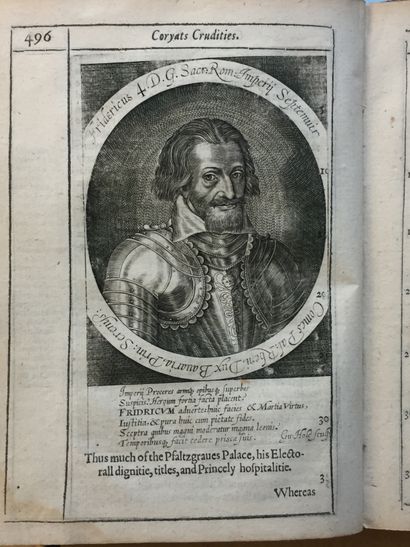
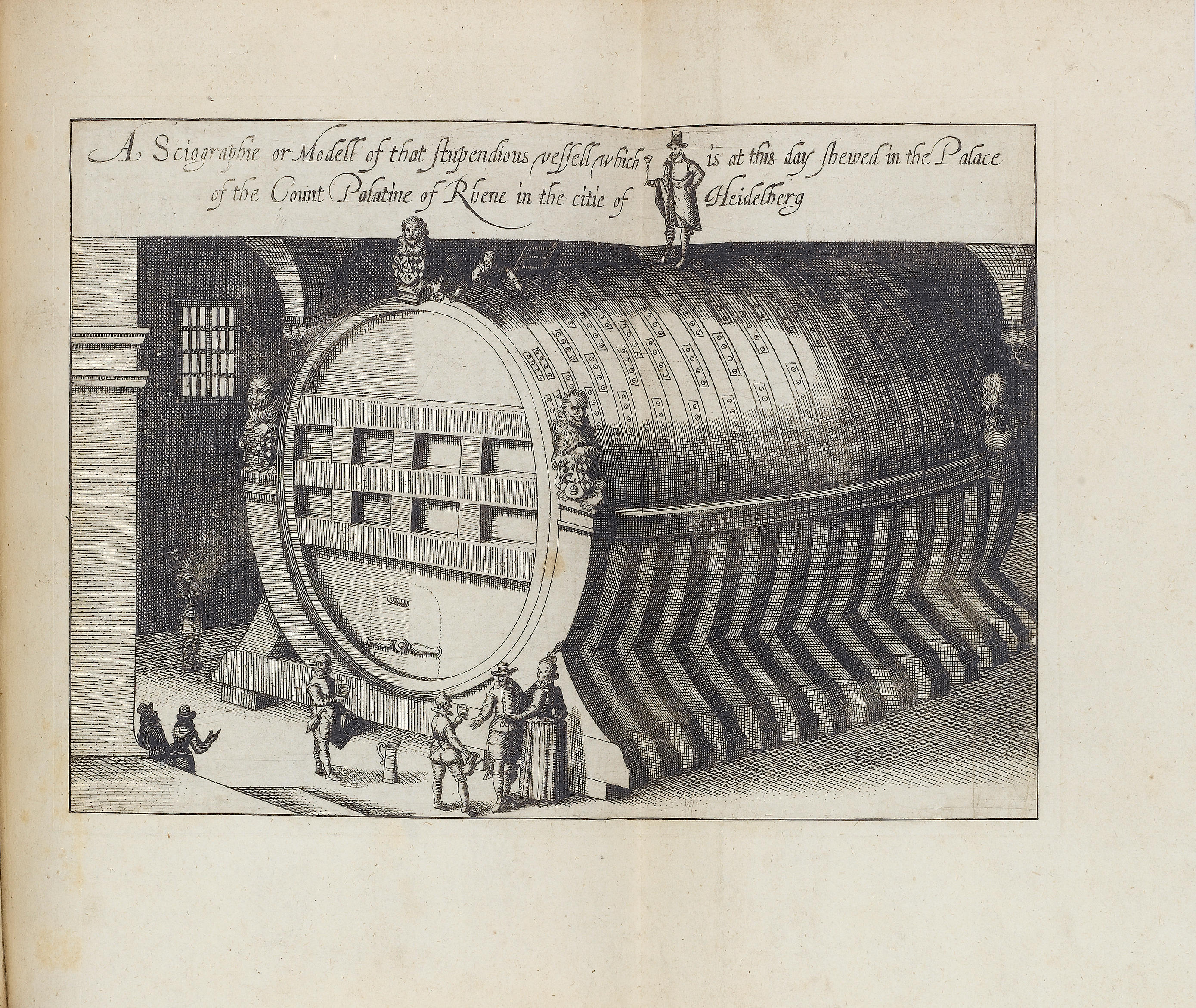
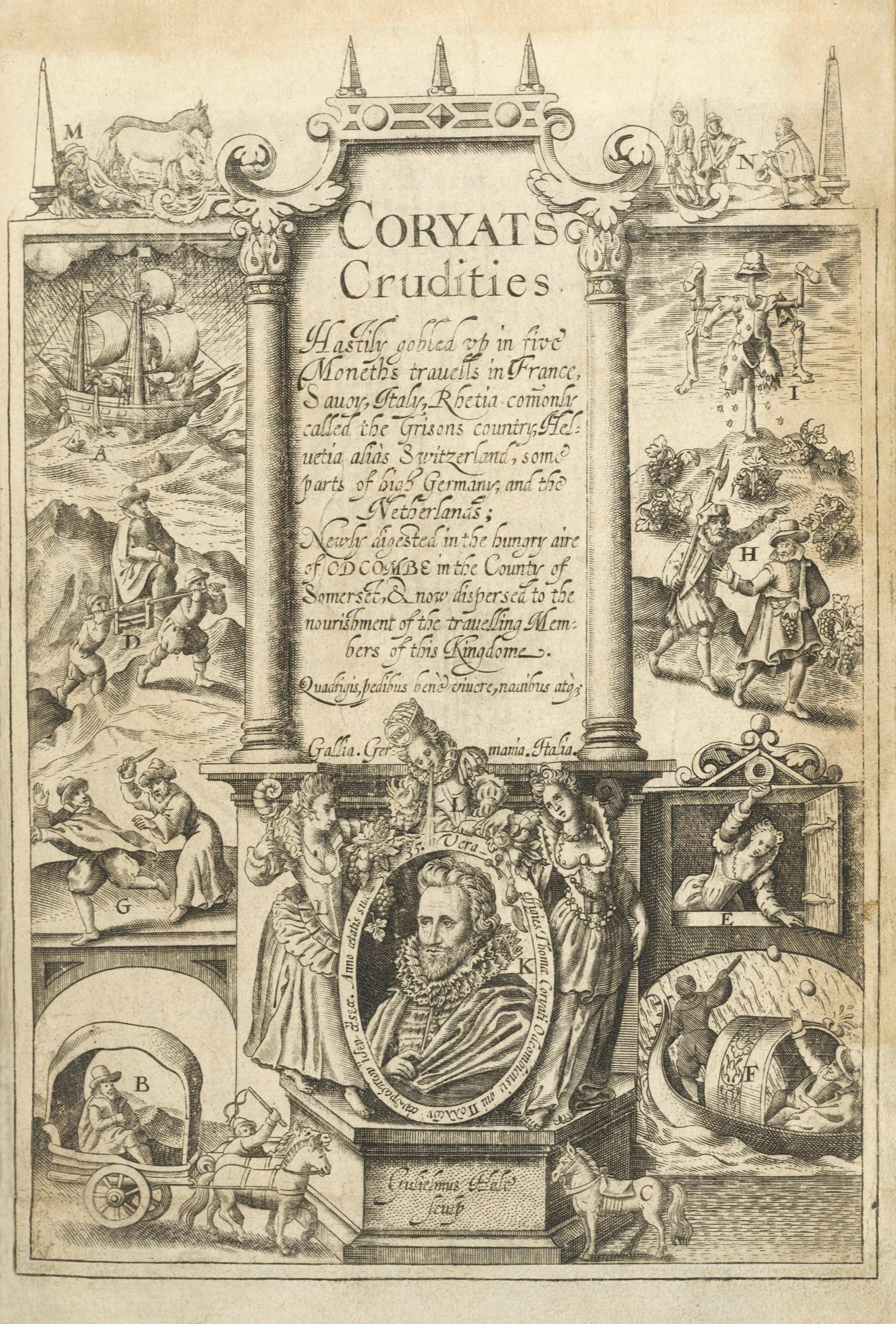
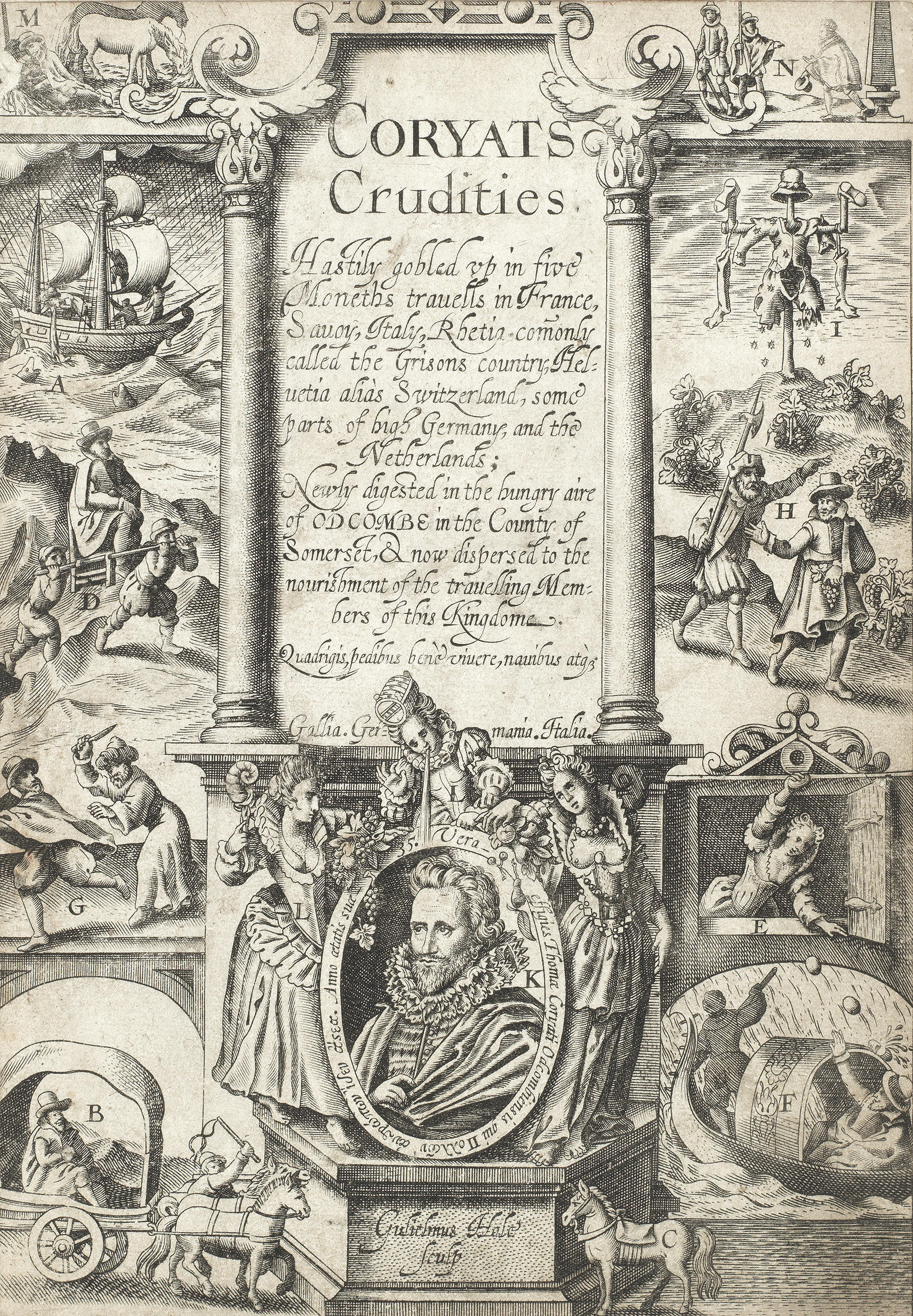
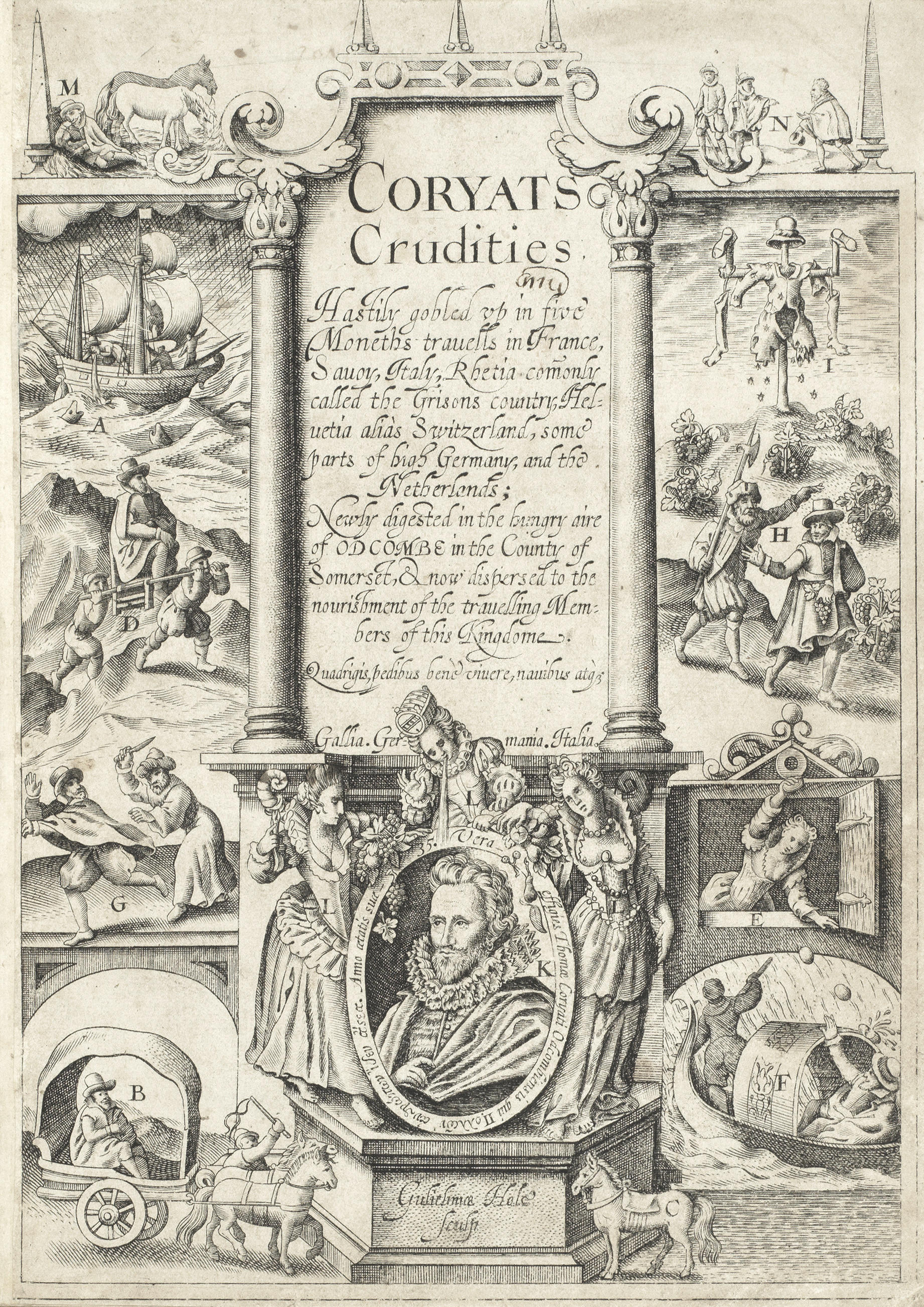

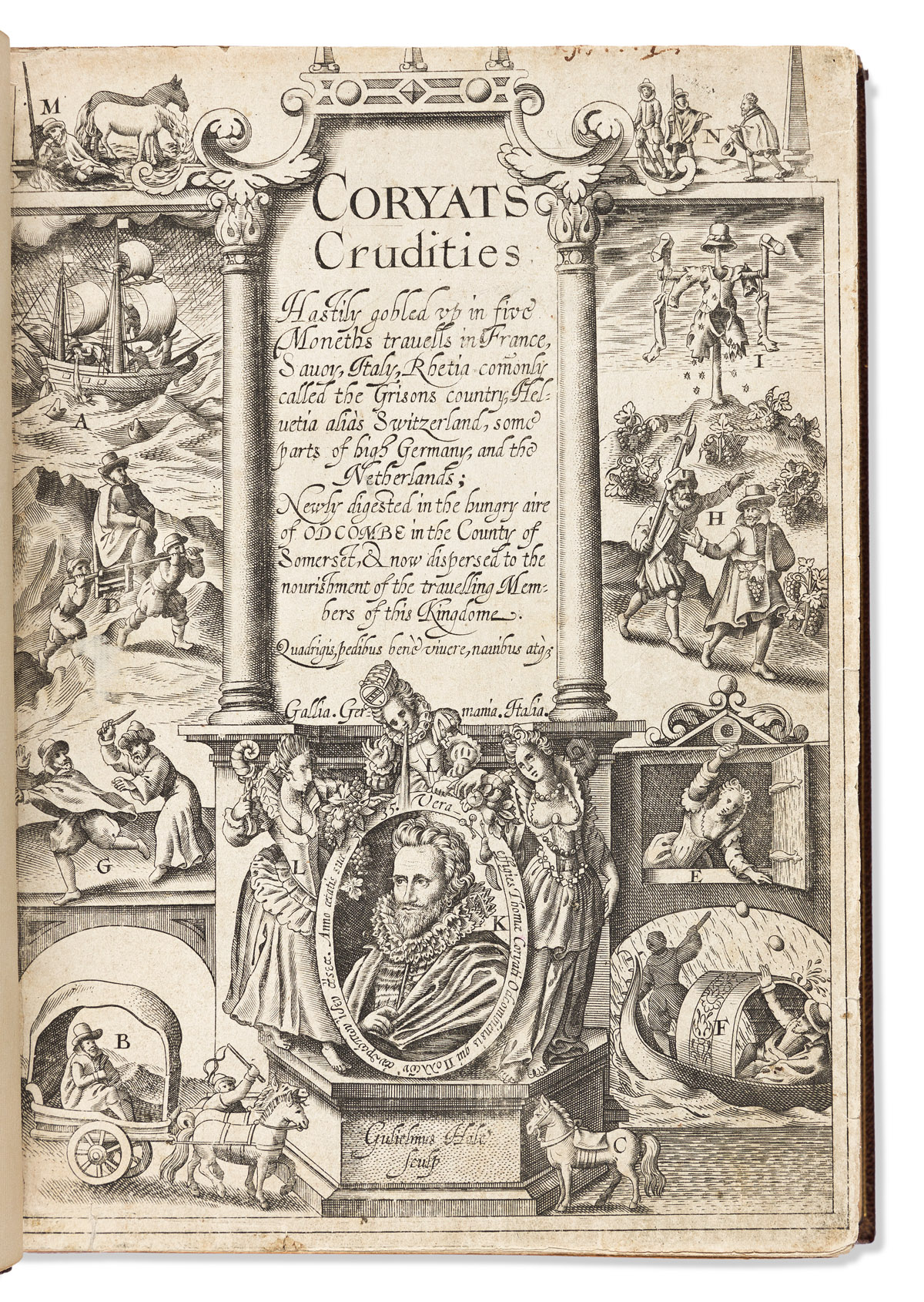
Testen Sie LotSearch und seine Premium-Features 7 Tage - ohne Kosten!
Lassen Sie sich automatisch über neue Objekte in kommenden Auktionen benachrichtigen.
Suchauftrag anlegen